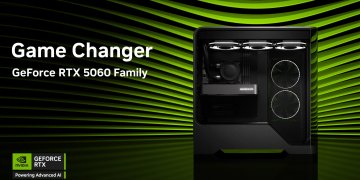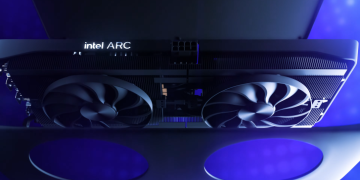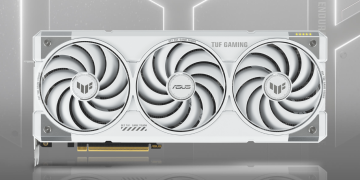The newest iteration of AMD’s FidelityFX SDK is here with a slew of bug fixes, especially targeting the quirks from FSR 3.1.1/2, which had been giving developers a bit of a headache. The updates aim to make things smoother and provide solutions to previously reported issues.
### FidelityFX SDK 1.1.3 Introduces Upgrades
AMD has rolled out FidelityFX SDK 1.1.3 on GPUOpen with significant enhancements, simplifying the lives of game developers everywhere. This update comes packed with optimizations and feature upgrades, making the toolkit far more streamlined.
Building on the previous version, this update focuses on resolving known issues while introducing fresh capabilities for Vulkan and DirectX 12. It’s a step up in terms of compatibility with Microsoft’s Game Development Kit, beneficial for both Xbox consoles and PCs. Let’s dive into what’s new with this release:
#### Frame Interpolation Backend Enhancements
This latest patch offers refinements and optimizations to the Frame Interpolation Backend. The result? Better performance and reliability for interpolation algorithms, enhancing frame transitions in games using FidelityFX Super Resolution 3.
#### Updates Specific to Vulkan
Improvements here are noteworthy. Inclusive of changes like the Letterbox adjustments, a shake-up of Vulkan binding shifts, and tweaks in VRAM query, alongside queue selection behavior. These adjustments cover everything from pipeline management and shader compilation to VRAM usage and GPU queue selection.
#### Motion Vector Fixes
The patch fixes inaccurate backbuffer sampling during motion vector calculations, which previously caused rendering artifacts. This improvement is bound to please developers seeking clearer visuals.
#### Framework Enhancements
Beyond some core stability tweaks, the SDK now supports typeless formats for DX12/GDK and separate backbuffer and Hudless formats. Such enhancements allow developers to render HUD elements separately, improving visual clarity.
#### Debugging and Performance Tuning
Additional debugging capabilities for pacing tests have been incorporated, enabling better frame pacing analysis. Plus, the newly exposed Frame Pacing Tunings offer developers control for precise frame adjustments.
#### Bug Fixes
The update also addresses several smaller bugs, including correcting typos, fixing minor inconsistencies, and eliminating a deadlock issue in the ‘UpdateTileMappings()’ function that previously led to rendering freezes. Furthermore, unused distortion texture channels have been removed, trimming down unnecessary resource consumption.
#### The Big One: FSR 3.1.3
One of the most significant updates is the introduction of FSR 3.1.3. This version comes loaded with new fixes and features, such as hybrid spin lock pacing offered as an optional feature for finer frame synchronization. The updates also enhance the AMDFidelityFX_FSR3FrameInterpolation GDK sample, extending native FSR 3.1.3 support to Microsoft’s Xbox and desktop platforms.
Overall, these enhancements position the FidelityFX SDK to be an even more robust tool for game developers, allowing for greater integration and improved performance across various platforms.












![[Free Game Giveaway] Pets Hotel for PlayStation (NA/EU) [Free Game Giveaway] Pets Hotel for PlayStation (NA/EU)](https://www.xgamernews.com/wp-content/uploads/2025/05/Free-Game-Giveaway-Pets-Hotel-for-PlayStation-NAEU-360x180.jpg)


































